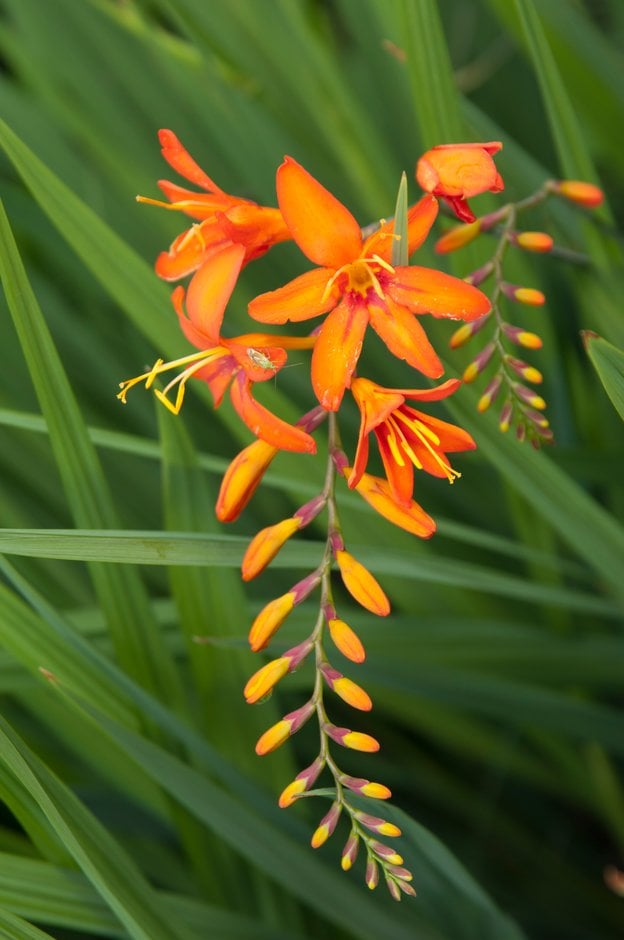Crocosmia 'Jupiter'
montbretia 'Jupiter'
A clump-forming, deciduous perennial to 75cm tall with upright, sword-shaped leaves. Arching stems bear spikes of outward-facing, funnel-shaped, orange flowers with red striping down each petal

Buy this plant
Size
Ultimate height
0.5–1 metresTime to ultimate height
2–5 yearsUltimate spread
0.1–0.5 metresGrowing conditions
Moisture
Moist but well–drainedpH
Acid, Alkaline, NeutralColour & scent
| Stem | Flower | Foliage | Fruit | |
| Spring | Green | |||
|---|---|---|---|---|
| Summer | Orange Red | Green | ||
| Autumn | Orange Red | Green | ||
| Winter |
Position
- Full sun
- Partial shade
Aspect
East–facing or South–facing or West–facing
Exposure
Exposed or Sheltered Hardiness
H5Botanical details
- Family
- Iridaceae
- Native to GB / Ireland
- No
- Foliage
- Deciduous
- Habit
- Clump forming
- Genus
Crocosmia are deciduous cormous perennials with erect, sword-shaped leaves and branched spikes of showy, funnel-shaped flowers in summer
- Name status
Accepted
How to grow
Cultivation
Plant 8-10cm deep in fertile, humus-rich, moist but well-drained and preferably sandy soil in full sun or partial shade; in colder areas plant somewhere with shelter from cold drying winds, such as near a wall, and protect in winter with a thick, dry, organic mulch. If clumps become congested, divide them in early spring. Has the potential to become a nuisance in some gardens if not managed well
Propagation
Propagate by division in early spring, just before growth starts
Suggested planting locations and garden types
- Coastal
- Mediterranean climate plants
- Cottage and informal garden
- Prairie planting
- Flower borders and beds
- Cut flowers
- Wall side borders
Pruning
No pruning required, except removal of dead leaves and flower stems before new growth starts in spring
Pests
May be susceptible to glasshouse red spider mite
Diseases
Generally disease-free
Get involved
The Royal Horticultural Society is the UK’s leading gardening charity. We aim to enrich everyone’s life through plants, and make the UK a greener and more beautiful place.